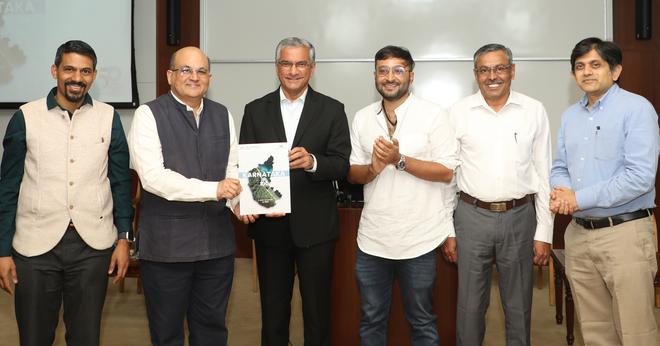Strengthening of local governance, upgrading physical and social infrastructure, increasing public and private spending on education as well as research and development (R&D) are some of the prescriptions given by the ‘Karnataka@100: A Vision Document for 2047’, a report released by the Indian Institute of Management, Bangalore (IIMB), and the Confederation of Indian Industry (CII) on Monday.
Four professors from IIMB have co-authored the report, while others, including Rishikesha T. Krishnan, Director, IIMB, have contributed to it.
“Karnataka has shown extraordinary socio-economic progress since India’s independence in 1947, and even more so since the liberalisation of the Indian economy in 1991. From coffee to IT, Karnataka has made a distinct name for itself on the global map. However, lofty economic growth has also brought to the state its fair share of unique challenges,” said Jitamitra Desai, faculty, Decision Sciences and a co-author.

“In the 21st century, Karnataka must utilise its strengths in innovation, entrepreneurship, biodiversity and heritage, to trailblaze an uncharted path of equitable and harmonious growth fuelled by a green ecosystem at its core, which will become a benchmark not just for India, but for the world, especially the global South. We strongly believe that Karnataka is uniquely positioned to undertake such global leadership today,” said Prateek Raj, faculty, Strategy.
The report has focused on 14 themes including entrepreneurial ecosystem, investment in education and skill development, affordable and universal healthcare, tourism, hospitality and sports and green ecosystem, among other things.
“I hope it (vision document) serves as a catalyst for fruitful conversations and action towards a more prosperous, equitable, and sustainable Karnataka,” said Professor Krishnan.
Speaking on the sidelines of the event, the authors highlighted the need for decentralisation in public administration, improvement in public infrastructure, allocation of resources in a balanced manner among other issues.
When asked about the changes that need to be brought in the urban administration in the State, the authors batted for directly elected mayors for cities.
“Along with empowered local bodies, we need directly elected Mayors who would have the capacity to make decisions about allocation of funds and other things. This will bring about some decentralisation. If not in Bengaluru, we can try this in other cities like Hubballi-Dharwad. We also need to establish more accountability and transparency in the system,” the authors said.
They also said that as the only city in the country where the demand exceeds the supply in terms of resources, the public infrastructure problem in Bengaluru can be solved through better urban planning.







